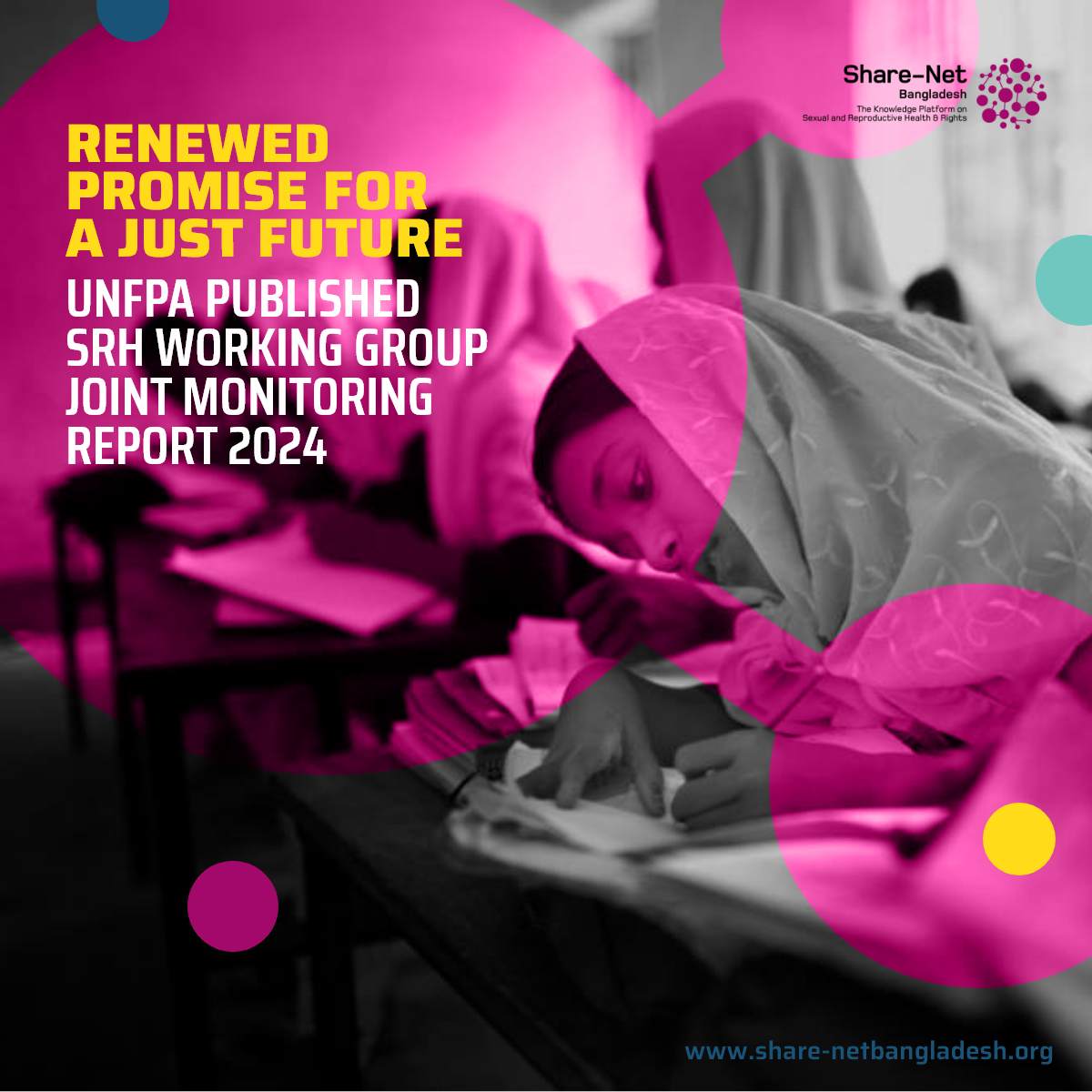Renewed Promise For A Just Future: UNFPA Published Sexual and Reproductive Health Working Group Joint Monitoring Report 2024
In 2024, the Sexual and Reproductive Health (SRH) Working Group conducted a comprehensive assessment of SRH services in the Rohingya refugee camps of Ukhia and Teknaf, Bangladesh. This evaluation aimed to scrutinize the accessibility, quality, and effectiveness of these services, which are vital for the well-being of both the refugee and host communities.
Key Findings
The assessment revealed significant challenges in service delivery. Many health facilities faced shortages of essential medical supplies and experienced frequent stockouts of contraceptives, undermining efforts to provide consistent reproductive health care. Additionally, a lack of adequately trained healthcare providers was noted, impacting the quality of care and patient trust.
Geographical barriers further complicated access to services. Some health centers were located far from refugee settlements, making it difficult for individuals, especially women and adolescents, to seek timely care. Cultural sensitivities and language differences also posed obstacles, as many healthcare workers were not proficient in the Rohingya language, leading to communication gaps and misunderstandings.
Successful Interventions
Despite these challenges, several initiatives have shown promise. Mobile health clinics have been deployed to reach remote areas, bringing essential SRH services directly to those in need. Community health workers, often from within the refugee population, have been trained to provide culturally sensitive care and education, bridging the gap between healthcare providers and the community.
Collaborative efforts between international organizations and local authorities have also led to the development of standardized training programs for healthcare workers, enhancing their capacity to deliver quality SRH services.
Recommendations
To address the identified gaps, the report recommends:
-
Supply Chain Improvements: Establishing robust systems to ensure a consistent supply of essential medicines and contraceptives.
-
Capacity Building: Investing in training programs to enhance the skills of healthcare providers, with a focus on cultural competence and language skills.
-
Infrastructure Development: Constructing additional health facilities within or near refugee settlements to reduce geographical barriers.
-
Community Engagement: Empowering community health workers and leaders to promote SRH awareness and services, fostering trust and acceptance.
These recommendations align with the broader objectives outlined in the 2024 Joint Response Plan, which emphasizes the need for comprehensive and accessible healthcare services for both Rohingya refugees and host communities.
Way Forward
The SRH Working Group’s 2024 assessment underscores the critical need for targeted interventions to enhance sexual and reproductive health services in Ukhia and Teknaf. By addressing supply chain issues, building healthcare capacity, improving infrastructure, and engaging the community, stakeholders can work towards a more equitable and effective healthcare system for all affected populations.
Source and Picture: UNFPA Bangladesh
Download UNFPA’s SRH Joint Monitoring Report 2024

